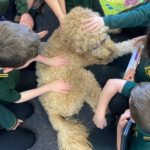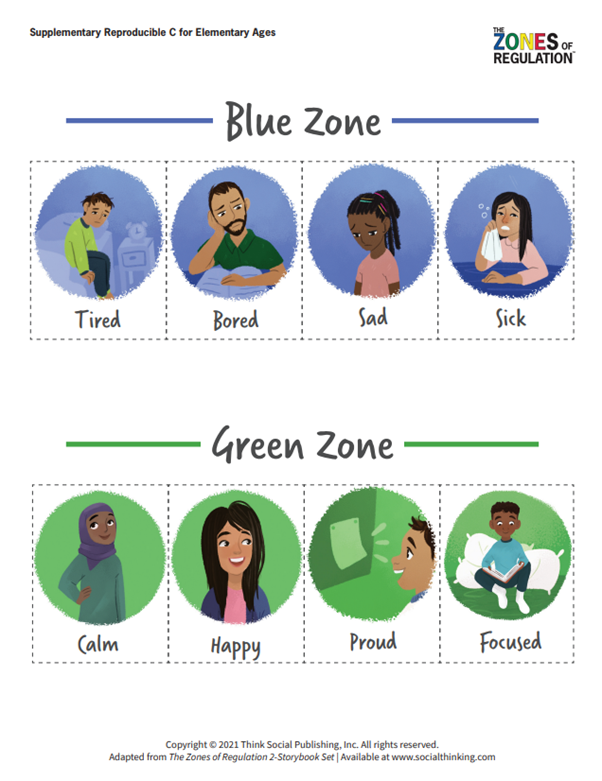
Wellbeing Team

Jade D’Atri – Wellbeing Leader
Jade’s role includes leading whole school wellbeing, Student Learning Support, Disability and Inclusion, small group and individual support

Janet Hergt – Chaplain
Janet’s role includes small group and individual support, and programs including Art Retreat, Logo Lads and Girl Power, and other small group programs to support student’s social skill development, resilience, and support through grief and loss. Parent consent is required for students to work with Janet.
Uniting Child and Family Wellbeing Program
This program is a pilot program available to Monbulk families. Family Wellbeing provides families with support with a wide range of issues, such parenting supporting, family violence support, NDIS support including assessment, housing, financial support, and connection to agencies. Families can self-refer, or a referral can be completed by school staff on their behalf.
Wellbeing Dog

Billy
Monbulk Primary School partners with Dogs Connect to provide our students with a Wellbeing Dog, Billy.
Respectful Relationships
ABOUT RESPECTFUL RELATIONSHIPS
The Respectful Relationships initiative teaches our children how to build healthy relationships, resilience and confidence. It also supports school leaders, educators and our school communities promote and model respect and equality. Respectful Relationships support students to develop the knowledge, understanding and skills to strengthen their sense of self and build and manage safe and respectful relationships.
Respectful Relationships takes a whole-school approach, recognising that schools are a place of learning, a workplace and a key part of local communities. It embeds a culture of respect and equality across our entire school community, from our classrooms to staffrooms, sporting fields, and social events.
This approach leads to positive change in students’ academic outcomes, their wellbeing, classroom behaviour, and relationships between teachers and students. We know that changes in attitudes and behaviours can be achieved when positive attitudes, behaviours and gender equality are lived across the school community.
Together, we can lead the way in creating genuine and lasting change so every child has the opportunity to achieve their full potential.
Respectful Relationships acknowledges that children of any age have challenges to overcome, teaching social and emotional skills appropriate to their age and level of maturity. It is being taught in all government and Catholic schools and many independent schools from Prep to Year 12, as a core component of the Victorian Curriculum.
In the primary years, Respectful Relationships focuses on treating everyone with respect and dignity. It is taught as part of the Health and Physical Education and Personal and Social Capability areas of the Victorian Curriculum.
The supporting Resilience, Rights & Respectful Relationships teaching and learning materials have been developed by world-leading experts from the University of Melbourne. These age-appropriate resources align to the Victorian Curriculum and include lesson plans and activities that help students learn and practise social skills and apply them in a positive way to learning, life and relationships.
The Resilience, Rights & Respectful Relationships resources cover eight topics for each year level.
Topic 1: Emotional Literacy
Topic 2: Personal Strengths
Topic 3: Positive Coping
Topic 4: Problem Solving
Topic 5: Stress Management
Topic 6: Help-Seeking
Topic 7: Gender and Identity
Topic 8: Positive Gender Relations
FOR MORE information
The best relationships are respectful ones. That’s why the Victorian Government is introducing Respectful Relationships in all government schools and many Catholic and independent schools are choosing to participate. To find out more about Respectful Relationships, please visit:
Resources
Parentline Victoria 13 22 89
Kids Help Line 1800 55 1800
We use the Zones of Regulation to help children understand and articulate their feelings. Here’s a handy chart to help families with the Zones.



